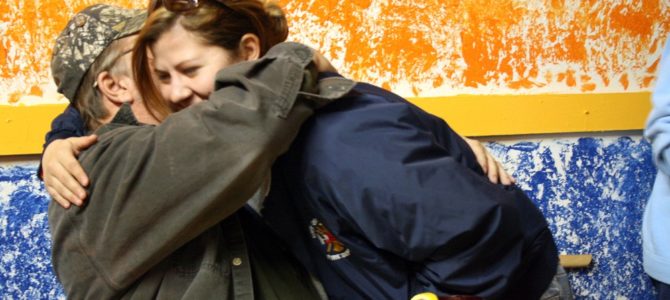
Human Rights Campaign President Alphonso David appeared on MSNBC to discuss how the COVID-19 crisis uniquely affects LGBT people in America. Statistics stating 1 in 5 LGBT Americans live in poverty and 40 percent of homeless youth identify as LGBT are well-known, but hearing that an estimated five million LGBT Americans are expected to lose their jobs is striking.
The statistic comes from the website of the LGBT activist organization. It states 40 percent of industries LGBT people are most likely to work in—restaurants, bars, and retail stores—are expected to close down. The website also indicates 17 percent of LGBT Americans lack health insurance.
Yet David’s interview illustrated a huge gap between the organization’s advocacy efforts and the daily lives of LGBT Americans. When asked by the host how lawmakers could protect this group due to the “disproportionate” impact related to industry closings, David argued his concern was whatever is implemented be free from “discrimination.”
He went on to talk about the number of states without LGBT anti-discrimination rules for employment, elaborating, “In some instances are fired from their jobs because they’re gay. Denied housing because they’re transgender. They’re denied public accommodations because they are bisexual.”
A HRC research brief titled, “The Lives and Livelihoods of Many in the LGBTQ Community are at Risk Amidst COVID-19 Crisis” merely argues, “More than 100 LGBTQ-supportive organizations, including the Human Rights Campaign, joined in a call to health care providers and policymakers to be keenly aware of the community’s needs. Underlying many of the LGBTQ communities’ vulnerabilities are economic disparities that will compound the realities of this global pandemic.”
Such assertions simply do not provide insight into how real gay and transgender people are managing currently. While LGBT organizations focus on “awareness” and repeating advocacy-related statistics, where is the direct outreach to real people in need?
Small groups crowdfunding to make a difference appear to be the answer gay and trans people in need are looking for. The Trans Sistas of Color Project in Detroit, Michigan, for example, recently organized to build care packages for LGBT people in need, including homeless people and the elderly, entirely funded from direct donations and volunteer work.
The Okra Project in New York City provides meals to transgender people in need year-round, funded by direct donations and volunteer work. The Our House project in Portland, Oregon, offers health care, housing, and other essentials to people living with HIV, again through direct donations and volunteer work. The Salvation Army has a dedicated page to protecting LGBT Americans during this crisis, offering homeless shelters and homeless youth services.
There are thousands more small and volunteer-based organizations dedicated to helping this population, and many traditional charities doing the same. These organizations bring food, clothing, medicine, and other essentials directly to people in need. They help their communities not through advocacy, but through living alongside the people they assist. Without multi-million-dollar budgets and highly paid advocates going on TV to complain about hypothetical concerns, these people help real people every single day.
The HRC and other LGBT advocacy organizations represent the leftwing belief in government responsibility towards caring for the population. They see a lack of specific laws and guidelines for LGBT people during this crisis as the problem, and assume adding these would be sufficient in ensuring LGBT people are provided for.
For perspective, the HRC and the Human Rights Foundation, both non-profit organizations, reported in 2019 total expenses of operation at nearly $74 million. Yet it is the everyday people, reaching out in their own communities, building from nothing and asking their friends and family to help that is making the biggest, tangible impact.
While LGBT activists and donors may see great value in the work organizations like the HRC do for their political causes, they should take note at the power of charity and community in a time of genuine uncertainty and crisis. This we can all benefit from.
No one was prepared for this crisis, and while people in a variety of different life situations are at more or less immediate risk, everyone is feeling the stress and the uncertainty. While it makes for good headlines, there is no benefit to labeling any particular group “disproportionately” impacted.
What matters is the recognition that we all have to find a way to help each other and that government is simply incapable of stepping in to fix everything. Churches, Facebook groups, small organizations, and so on are the lifeblood of these efforts. It doesn’t need to be any more complicated than that.








